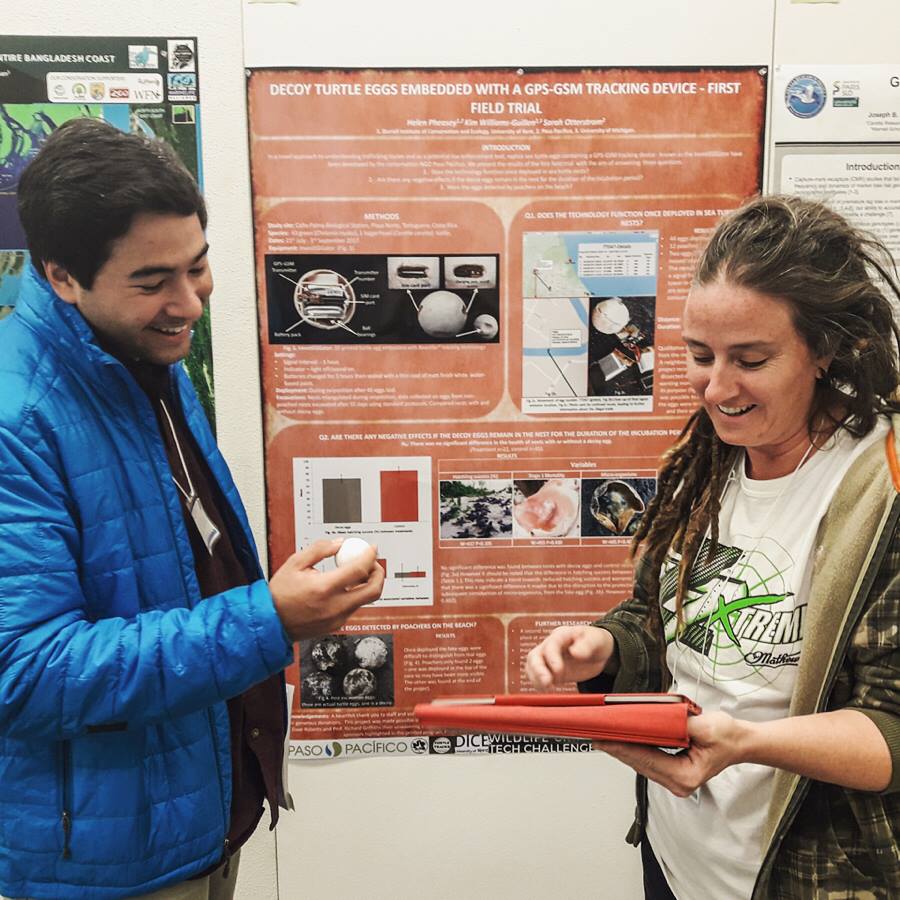Archie Carr is thought of in the turtle community as the grandfather of sea turtle research. He was the first person to attempt to tag turtles and research still takes place at a number of sites where he did his pioneering research in the 1950s.
DICE PhD student Helen Pheasey received the Archie Carr student award at the 38th International Sea Turtle Symposium in Kobe, Japan. Her poster presented the results of the first field trial of a novel approach to tackling sea turtle egg poaching. An NGO in California, Paso Pacifico, developed decoy turtle eggs containing a GPS-GSM tracking device designed to be deployed into turtle nests vulnerable to poaching. When poachers steal the nest they inadvertently take the decoy egg, thus enabling the team to track their movements.
Helen’s job was to test these eggs in the field by deploying an egg into a nest while the turtle is laying. There were three questions to answer:
- Does the technology work?
- Would the poachers find the eggs on the beach and discard them?
- Are they safe – in the event the nest isn’t poached would the decoy eggs harm the nest?
In short, the technology works: the majority of poached nests remained in the local area but Helen also found that eggs had travelled inland. The poachers didn’t find them on the beach, meaning the texture and colouration of the eggs was sufficiently realistic. And there was no significant difference in the hatching success between unpoached nests that had a decoy egg and those without. A more detailed account can be found in the poster here.
As this was a field trial, the aim was not to make arrests or prosecutions, however it has shown that these eggs can be employed as a law enforcement tool for the future. They can help identify trade routes and patterns which can be used to better target limited law enforcement in resource poor countries. Helen will be deploying more eggs at two different locations this coming nesting season.

